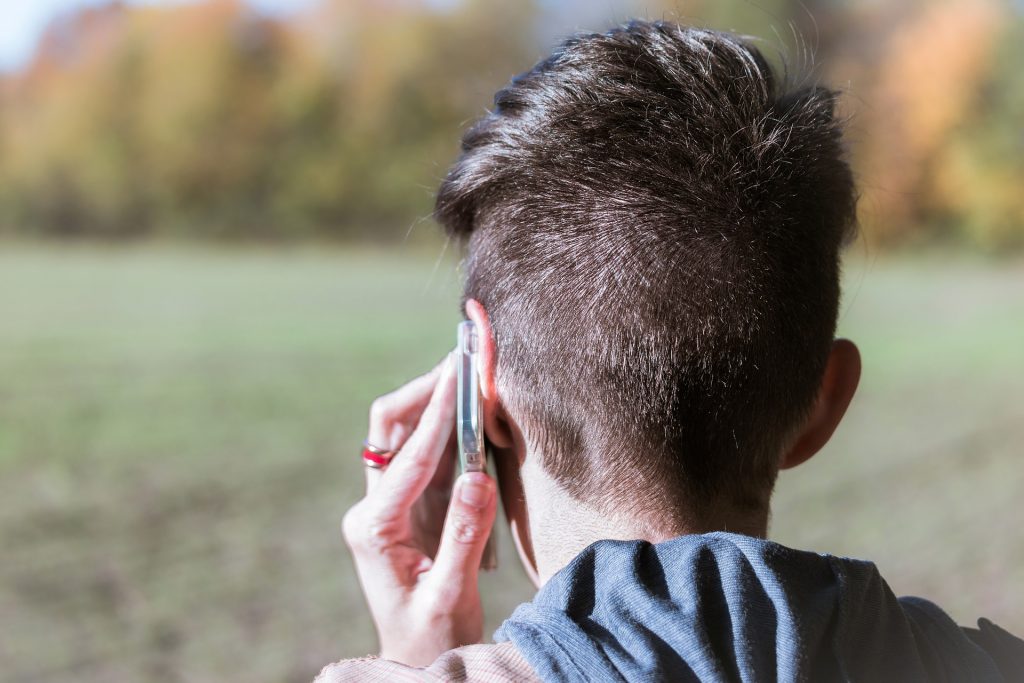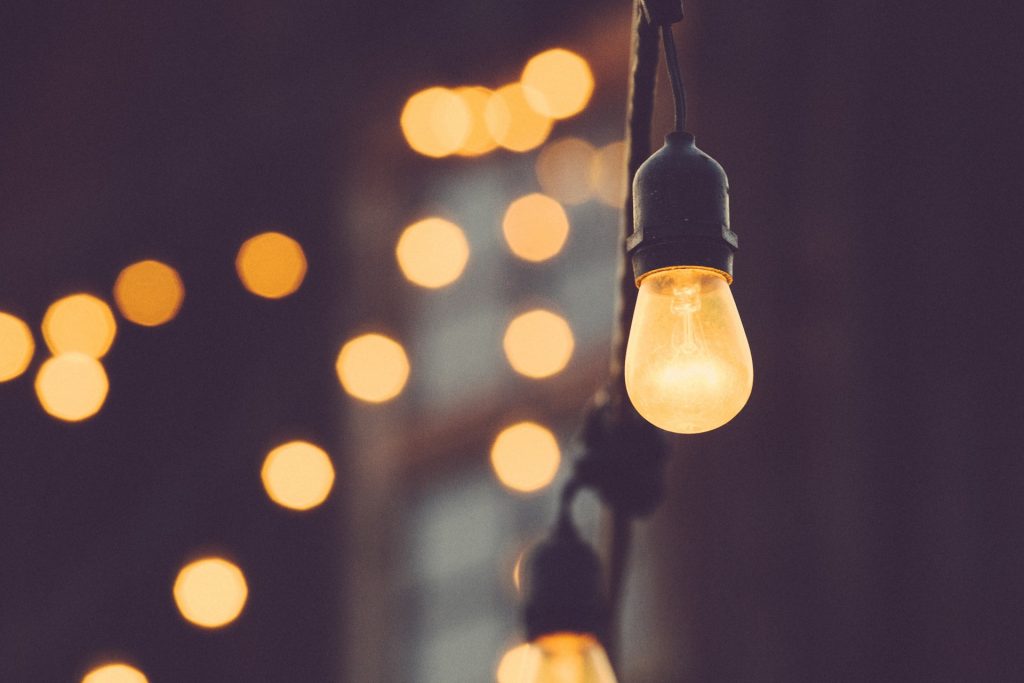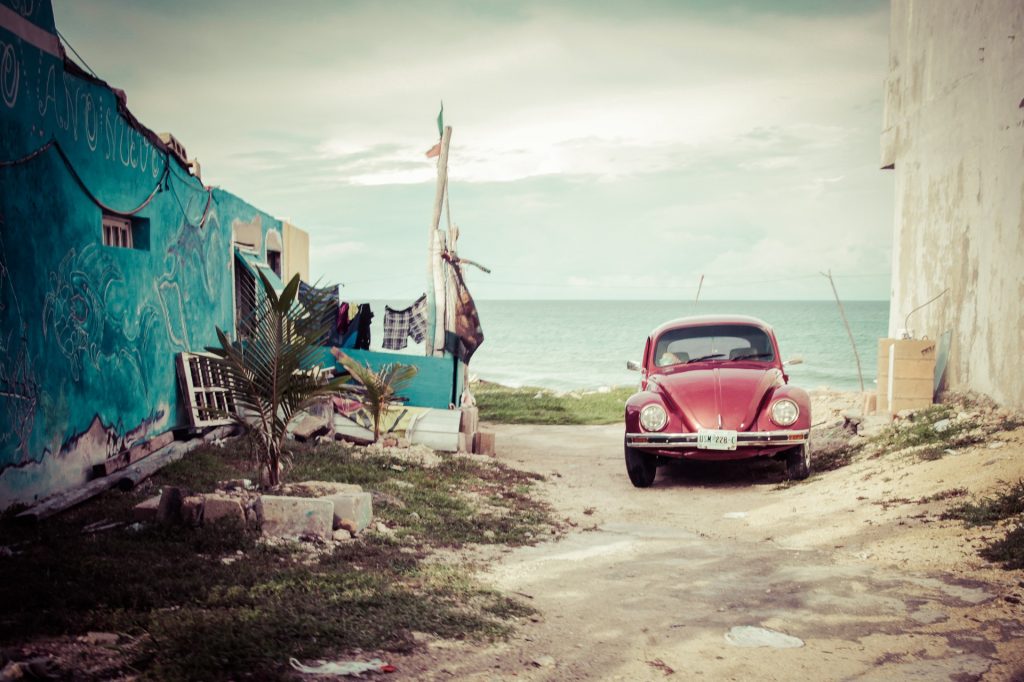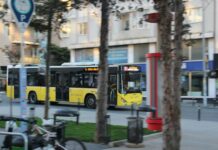It took me about an hour of walking to reach Erbeyli. In most of the towns I had passed, the mosque was within 200-500 meters of the highway. In Erbeyli it was a little further off the road, but I could spot the minaret rising into the sky about a kilometer away, on a road perpendicular to the main road. I had picked this as the spot to stay for the night even before I arrived in the village. I heard the call to prayer begin as I entered town, so I stepped up the pace a bit.
I turned left off the highway and crossed the tracks of the Denizli to İzmir train. On the other side of the tracks was a bakkal. These markets are often the social hub of the village, so I popped my head into the market to say hello and tell them I was walking through and would like to go rest a bit at the mosque. I asked if that would be okay, and the owner of the bakkal said that yes, of course, it was fine for me to rest there.

I left the bakkal quickly. I was in a hurry. I wanted to be waiting in the mosque garden when the men came out after prayers.
As I walked deeper into the village towards the mosque, I encountered many families out for a relaxed late-afternoon stroll. Happy, well-dressed boys and girls circled around on shiny new bicycles, welcoming me to their village. I returned their smiles and greetings.
When I arrived at the mosque, I was relieved to see the men were still inside for prayers. I found the fountain, set down my pack, turned on one of the spigots, and washed up as best I could. Then, as I took a look around, I noticed that the garden was completely tiled over. The previous night’s well-kept mosque garden had plenty of dirt and grass to sleep on. This one might be more challenging, but with my sleeping pad it wouldn’t be too much of a problem.
The men finished their prayers and emerged from the mosque. When they saw me standing there they looked at me questioningly. Who is this unidentified stranger with a backpack standing by the fountains? They didn’t seem suspicious, just curious. I smiled at them and nodded and said hello. The larger group dissipated, leaving a smaller group of six behind. They walked over to me, we shook hands and started chatting in Turkish. They asked me who I was and what I was doing there. When I told them I was walking across Turkey they began laughing. “Well, you’re just beginning!” they said.
As we made small talk, I commented on the farms in the area and asked what they were growing. The men replied that in this area they grew peaches and figs mostly.

One of the older men, who seemed to be a leader in the group, questioned me further about what I was doing. I told him more about my walk and that this looked like a very comfortable place to stay for the night. “Would you mind if I set up camp here?” I asked. “I have everything I need in my backpack.”
“It’s probably not suitable,” said the older man. “Look, it is all tiled over.”
The sun was getting low, and I didn’t want to have to move on to the next village, so I pressed a bit more and asked, “Is there another place I could sleep instead?”
The men eyed each other uncertainly. I started to feel uncertain myself. Was it not cool for me to stay at a mosque after all? Was it not cool for me to stay in this village? Then they began explaining that the problem was that the tiled-over mosque grounds weren’t really a suitable place for me to sleep. They wanted me to have a roof over my head and a couch to sleep on, they said.
I insisted that I had a sleeping pad and that the tiles were no problem. The older man said, “No, we will find you another place to stay.”
Most of the men in the group were elderly, 65-75 years old. One of the six, though, was a younger man in his early twenties. He stood out in the group, not only because of his age, but because he was wearing jeans and a light blue polo shirt with horizontal stripes. He spoke in a clearer Turkish that was easier for me to understand than the slurred Turkish of the older men. The older man I’d been talking to motioned to the younger man in the blue polo shirt and told him to call the muhtar (village administrative head). The young man tapped a number into his cell phone and called the muhtar. I overheard him telling the muhtar my story.

“Do we have a place for him?… Yes, he has all his camping gear — sleeping bag, tent, everything.… We don’t want him to stay at the mosque. The yard is all tiled over. So what should we do?… No, that space is all used up.… Okay, I’ll do that.”
The young man hung up.
“We don’t have any space here,” he said to me, “but would you want to stay at my place?”
I don’t know what he thought “space” was, but an offer to stay in someone’s home was fine by my book. I nodded yes.
The young man motioned to me and said, “Come with me.” So I said goodbye to the older men and started walking down the street with the younger, blue polo-shirted one.
As we walked to his house I asked him some questions about himself. His name was Enes. He was 23 years old, and he was the village’s imam.
I had never met an imam before, but my image of imams was that they had long gray beards and mustaches. They wore skull caps and long flowing gowns. Enes was twenty-three years old and wore polo shirts.
I asked, “Am I going to stay at your place tonight?”
He said, “Yes, of course!”
When we walked into his apartment I saw that he lived like a typical twenty-three-year-old young man who had just gotten his first job and apartment. It was basically a bachelor pad with no furniture to speak of except for a spindly little table in the kitchen, one chair, and a futon mattress on the floor of the living room. Enes dragged the mattress into my room so I could spread my sleeping bag on it. Later, when I opened his refrigerator, I saw only a bottle of ketchup and a jar of mayonnaise.
After a few minutes, Enes needed to leave to take care of some unspecified imam business. I stayed behind, alone in his empty apartment.
I decided to wash up in the bathroom. It was a good thing I wasn’t very dirty that day, as the only items in the bathroom were a worn toothbrush, a half-used tube of toothpaste lying by the sink, and a few sheets of toilet paper on the back of the toilet, no spare roll in sight. There were also no towels anywhere. I washed as well as I could and dried off with my t-shirt. Then I laid out my sleeping bag on the futon and checked my emails on my phone.
Enes came back to the apartment after dark, about 9:30 p.m. He was talking to a friend on his phone. I was sitting in the dark because I hadn’t been able to find a light switch. I thought maybe there wasn’t even a light bulb in the apartment, it was so barren.

When he finished the call, he said to me that he was going into the next town to hang out with some of his friends. Would I like to come? I said, “Sure, of course.”
We went to his car, a rundown red subcompact. He cleared some debris from the passenger seat and I plopped down as he went over to the driver’s side. While we drove the 10 kilometers to İncirliova, I asked him about the process of becoming an imam in Turkey.
Enes had graduated from an imam school, which is similar to a seminary in the US, but it is run by the government. He was originally from a town about forty miles from Erbeyli. When we graduate from imam school, he told me, the government ministry in charge of placement assigns us to a village, and Erbeyli was the one he had been assigned to after his graduation.
I asked him, “What is the salary of an imam?”
He said that the salary wasn’t great. It was about two thousand lira per month, which comes to about one thousand US dollars per month (in 2012). It’s not a lot, Enes told me, but the village provides a house for the imam.
In İncirliova, we found his friends sitting outside a restaurant. They were also in their early twenties and were also government employees, but from other departments such as sanitation and postal. I found it strange that an imam and a garbage man got their paychecks from the same personnel office.
We sat on wooden chairs around a little wooden table on the sidewalk and drank tea and talked about girls, fast cars, and vacations, probably what all young men in their early twenties would talk about.
Later, while driving me back to the house, Enes mentioned that he was going out that night to attend a friend’s wedding, and he invited me to go along. I told him thank you, but it had been a long day and I would like to turn in. He said he would probably be out late, and suggested that before I leave in the morning we should meet up for breakfast. I told him that sounded good.
Before he left for the wedding he turned on the living room light and showed me where the other light switches were. Alone once again in the imam’s unfurnished apartment, I went back to checking my emails and uploading photos onto my website. Around midnight, I turned in and slept soundly.
Monday, 3 September
I woke up the next morning in the early light, about 5:30, expecting to have breakfast with Enes, but he was nowhere to be found. I brushed my teeth, packed my things in my backpack, and walked out to the main road for my day’s walk to Aydın, a larger town east of İncirliova, where we had met his friends the night before.
A couple kilometers down the road a red car honked at me and pulled over. It was Enes. He rolled down the window and said, “Hop in, we are going to breakfast!” He wanted to catch me before I got too far away. He apologized, saying he had wanted to have breakfast with me but had to leave early to do some imam business and was glad he had found me by the side of the road.

So we drove to İncirliova and Enes called his friends from the night before to meet us for breakfast. One of them was busy and couldn’t make it. The three of us who could make it had breakfast with çay and poğaça (a plain, buttery white roll).
“How did things go at the wedding last night?” I asked the two of them. They told me the wedding had been for a friend of theirs, so they had been out late drinking and had just woken up a few minutes before Enes had pulled up, honking, beside me on the side of the road.
I laughed at the image. Instead of a long-bearded holy man, here was this twenty-three-year-old kid in a light blue polo shirt and jeans getting drunk with his buddies, dancing until late at night at a wedding, and then passing out at a friend’s house. I was a little puzzled though. Earlier that morning I had heard the call to prayer in the village. I said to him, “When I heard the call to prayer I assumed you were at the mosque.” He said, “No, that wasn’t me; it was a friend doing back-up for me.”
After breakfast Enes asked me if I wanted him to drive me into Aydın. I told him, “No, I need to go back to the spot where you picked me up. I need to walk every meter.” He took what I said at face value. He took me back to the exact spot he had found me an hour earlier. We said our goodbyes, took a photo together, and on I went, walking east.
—
In 2012, Matt sold off or gave away almost everything he owned. He strapped whatever was left to his back, flew to Turkey, and walked across it. Every foot, from one end of the country to the other. Along the way he slept in mosque gardens, dined with strangers, and stumbled into refugee camps.
This is the story of that journey. We’ll be publishing one chapter each week from his book. If you would like to read the whole thing at once, you can purchase his book titled Heathen Pilgrim: Walk Across Turkey on Amazon.









